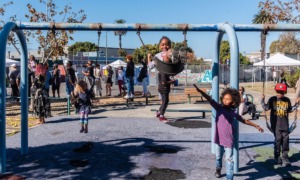Author(s): The Field Center for Children’s Policy, Practice & Research and the Loyola University Modern Slavery Research Project
Published: Apr. 17, 2017
Report Intro/Brief:
“Between February 2014 and June 2016, researchers from Loyola University New Orleans’s Modern Slavery Research Project (MSRP) were invited by Covenant House International and ten of their individual sites in the United States and Canada to serve as external experts to study the prevalence and nature of human trafficking among homeless youth aged 17 to 25. MSRP researchers interviewed 641 homeless and runaway youth who access services through Covenant House’s network of shelters, transitional living and apartment programs, and drop-in centers. Youth were invited to participate, on a voluntary basis, in a point-intime study about work experience. Semi-structured interviews were conducted using the Human Trafficking Interview and Assessment Measure (HTIAM-14) to assess whether youth had been trafficked for sex or labor in their lifetimes.
Homeless youth are vulnerable to both sex and labor trafficking because they tend to experience a higher rate of the primary risk factors to trafficking: poverty, unemployment, a history of sexual abuse, and a history of mental health issues. If they have families who are involved in the commercial sex trade or gangs, their risk is even higher. Homeless youth indicated that they struggled to find paid work, affordable housing, and support systems that would help them access basic necessities. They had experienced discrimination in their jobs and in housing. A confluence of factors made the homeless youth we interviewed vulnerable to both sex and labor traffickers who preyed on their need. It also made them more likely to turn to the sex trade for survival.”































